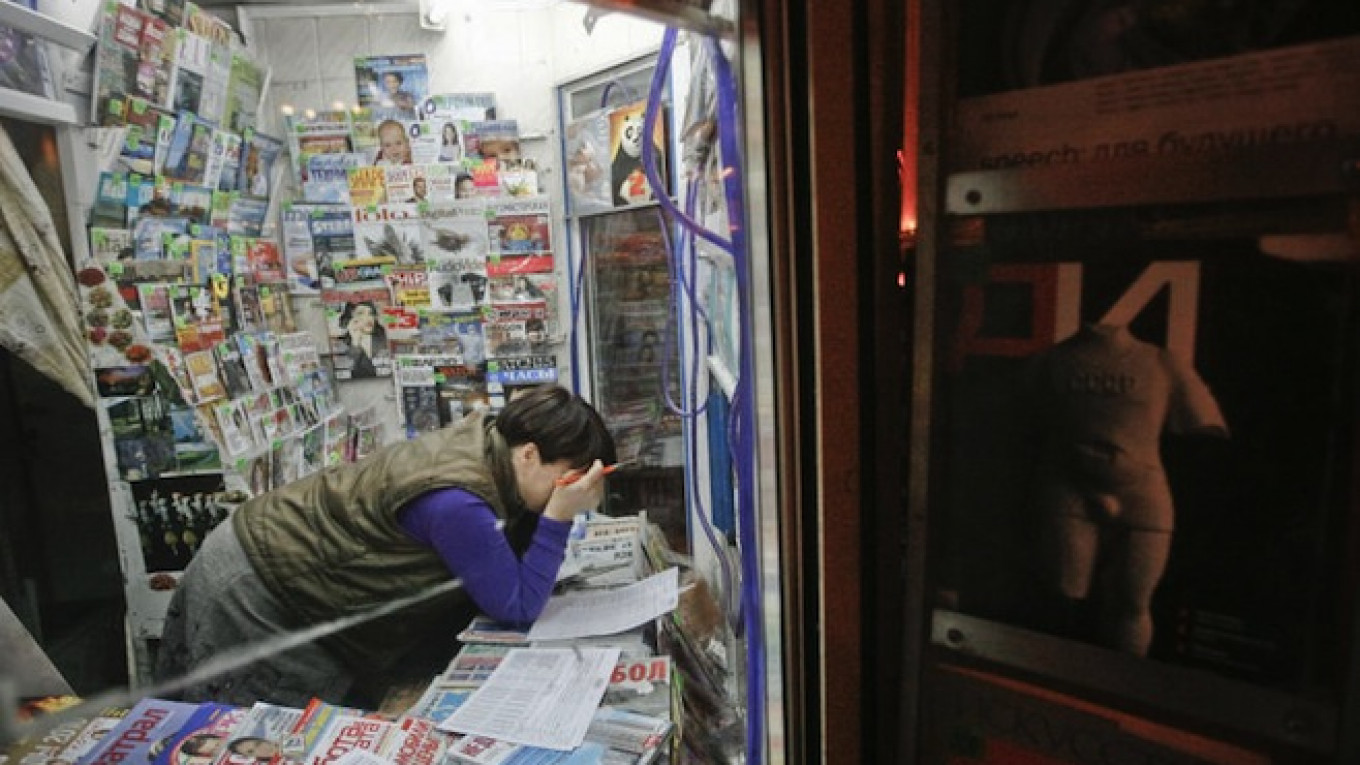Media outlets that are deemed to promote extremism, violence, terrorism or pornography could soon be hit with heavy fines in line with a draft bill that journalists fear may bankrupt many Russian publications.
The bill, which was penned by the Communications and Mass Media Ministry, would see media outlets fined between 400,000 rubles ($11,000) to 1 million rubles ($27,000) for breaching regulations over content.
The draft was posted online Thursday for public discussion, and Russian citizens will be able to contribute their opinions up until Sept. 19.
While media outlets are already prohibited from promoting the above vices, the government has yet to determine punishment for the transgressions. However, it is allowed to blacklist without a court order websites that promote suicide, child porn, illegal drugs, extremism, terrorism and breach of public order.
Prominent liberal opposition websites Grani.ru, Kasparov.ru and Ej.ru, as well as the Livejournal blog of anti-corruption champion Alexei Navalny were banned earlier this year over the supposed promotion of public unrest.
And Dmitry Muratov, editor-in-chief of the oppositional Novaya Gazeta, fears the new bill could drive many media outlets into bankruptcy, RBK news site reported Thursday.
Vladimir Sungorkin, the editor-in-chief of Komsomolskaya Pravda, Russia's most popular tabloid, added that 1 million rubles would be "a significant sum" for his paper, RBK reported.
Russian authorities have in recent years tightened their grip over most spheres of public life, including through increased censorship of the media.
The Communications and Mass Media Ministry has been among the trailblazers of the restrictions campaign: In addition to website blacklisting, it has also co-lobbied a law banning expletives in arts and media.
The ministry's media watchdog said earlier this year that it was planning to spend about 50 million rubles ($1.4 million) on software to automatically monitor and censor extremism and swear words on the internet.
A Message from The Moscow Times:
Dear readers,
We are facing unprecedented challenges. Russia's Prosecutor General's Office has designated The Moscow Times as an "undesirable" organization, criminalizing our work and putting our staff at risk of prosecution. This follows our earlier unjust labeling as a "foreign agent."
These actions are direct attempts to silence independent journalism in Russia. The authorities claim our work "discredits the decisions of the Russian leadership." We see things differently: we strive to provide accurate, unbiased reporting on Russia.
We, the journalists of The Moscow Times, refuse to be silenced. But to continue our work, we need your help.
Your support, no matter how small, makes a world of difference. If you can, please support us monthly starting from just $2. It's quick to set up, and every contribution makes a significant impact.
By supporting The Moscow Times, you're defending open, independent journalism in the face of repression. Thank you for standing with us.
Remind me later.






